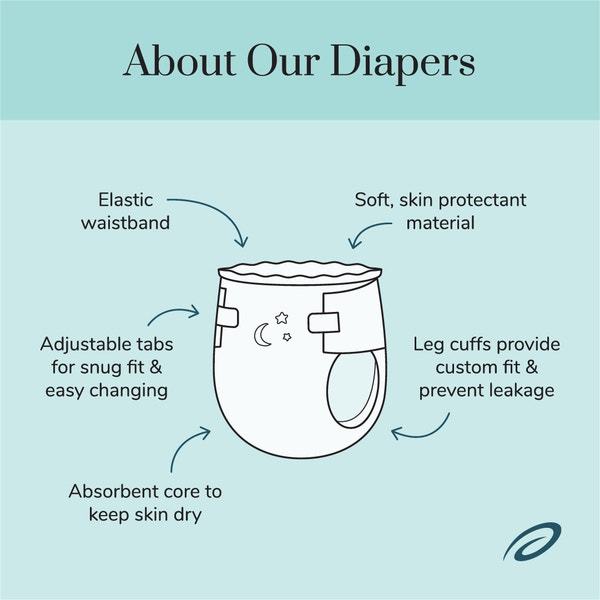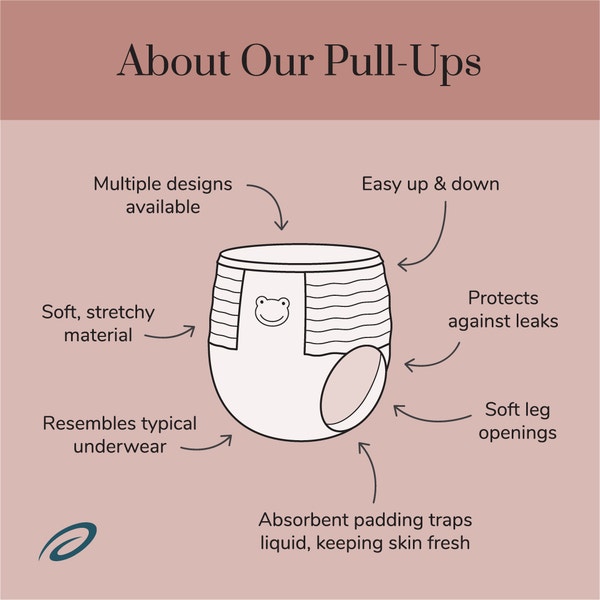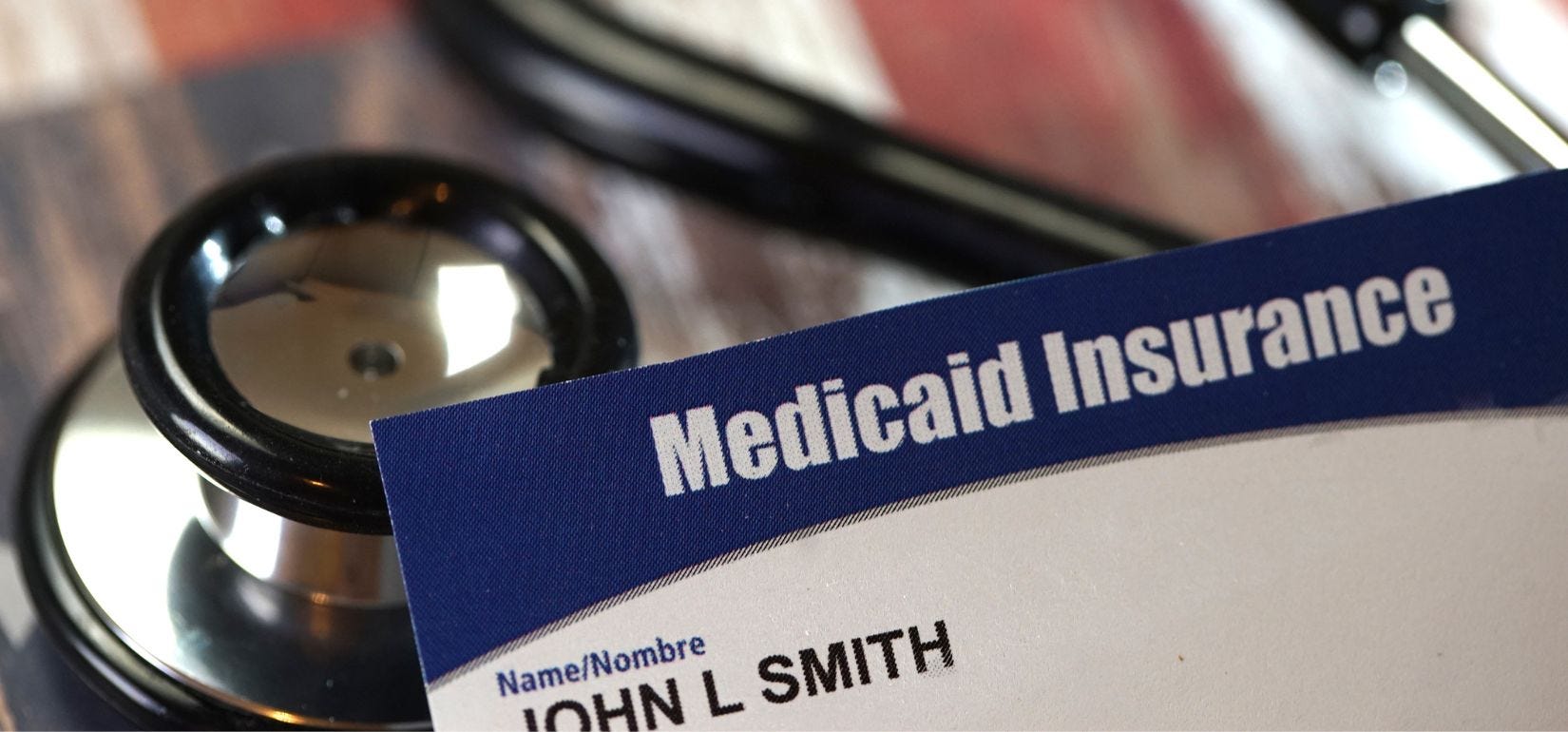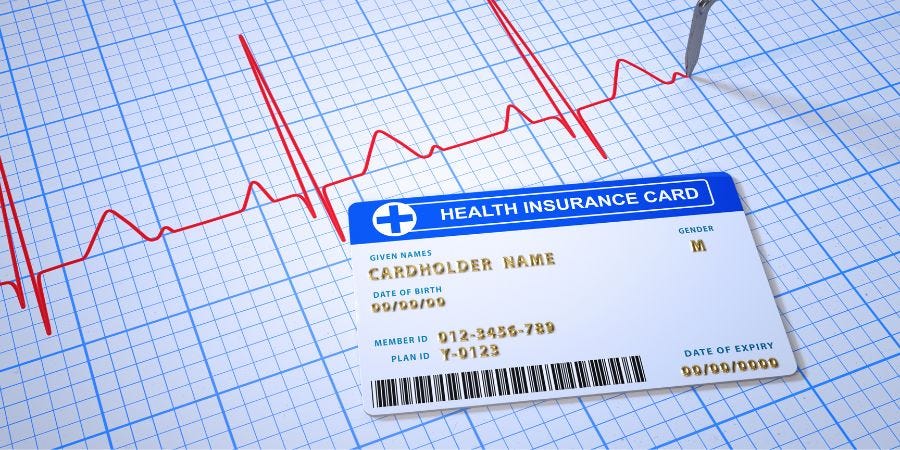Key Takeaways:
- If your child is on Medicaid and has a medical need for diapers, they may be eligible to receive them for free through a provider like Aeroflow Urology.
- To get coverage for diapers or pull-ups, your child's healthcare provider must provide a prescription for products, confirming they are medically necessary.
- Medicaid coverage for diapers and other supplies varies from state to state and even between different plans. Contact your Medicaid plan or Aeroflow Urology to find out what's covered in your area.
Diapers and pull-ups are one of a child's most basic yet often overlooked needs. For many families in the US, the financial burden of purchasing incontinence products can be substantial, leading to concerns about how to provide these essential medical supplies for their little ones.
If you're a parent or guardian facing this dilemma, you might wonder, "Do Medicaid programs cover incontinence supplies?"
Get the answer to this and other questions about diapers and Medicaid coverage in this article, and find out if your child qualifies to get free incontinence supplies through their insurance plan.
What Are Pediatric Diapers?
Pediatric diapers are incontinence products for children over the typical potty training age of 3 to 4. Many children who use pediatric diapers may have disabilities or other medical conditions that cause urinary incontinence or fecal incontinence.
These absorbent supplies are great for those with heavier bladder and bowel leakage.


Pediatric Diaper Features
- Designed for older and younger children.
- Range of sizes (1-6, 7-XS).
- Adjustable fit for maximum comfort all day or night.
- Tab-style closures for easy changes for caregivers.
- Breathable materials for healthy skin.
- Odor control to trap strong smells.
- Ultra leak protection for heavier incontinence.
- Choice of style between daytime or nighttime diapers.
- May be covered through Medicaid or Medicaid managed care health insurance plan.
What Are Pediatric Pull-Ups?
Pediatric pull-ups, also known as pull-ons, are incontinence products for children ages 3 to 4 or older who may have continence issues due to an underlying disability or other medical needs.
Pull-ups are perfect for older children, known as youth training pants.


Pull-ups are also an excellent choice for children and older children who can change themselves and for children who wish to have protective products that look and feel like real underwear.
Pediatric Pull-Up Features
- Designed for younger and older children.
- Range of sizes (2T-5T, Youth S/M-Youth L/XL).
- Pull-on style with a flexible waistband to promote independence and comfort.
- Tear-away sides for easy removal.
- Boys' and girls' designs to look and feel like regular underwear.
- Daytime and nighttime pull-ups for different levels of leakage.
- Odor control to keep kids smelling fresh.
- May be covered by Medicaid health care plans.
Check your coverage for 100% free incontinence products now!
Check your coverage for 100% free incontinence products now!
Will Insurance Cover Diapers & Pull-Ups for My Child?
The cost of buying diapers and pull-ups out of pocket can quickly add up to high amounts, especially if your little one manages any incontinence due to a disability or health condition. The good news is that if your child is a Medicaid recipient, their insurance provider may cover their incontinence supplies!
Depending on your state Medicaid plan's qualification requirements, your child may qualify to get their diapers & pull-ups for free with a durable medical equipment provider (DME) like Aeroflow Urology.
All you need to do is fill out our secure Eligibility Form for your child, and we'll take care of the rest! Within 1-2 business days of submitting your child's insurance information, you'll receive an email or text to let you know if they qualify for diapers, pull-ups, and other incontinence products we carry, such as:
- Underpads (chux).
- Booster pads.
- Gloves
- Wipes
Medicaid Coverage FAQs
1. Do doctors prescribe diapers?
Your child's healthcare provider must provide your child with a prescription for pediatric incontinence products like diapers, pull-ups, and more.
2. Does Medicare pay for pediatric diapers and pull-ups?
Unfortunately, Medicare does not currently deem incontinence products as medical necessities. However, if your child requires catheters, they may be able to get them at low cost through Medicare with Aeroflow Urology.
3. How many supplies does Medicaid cover per month?
The number of diapers, pull-ups, and other supplies your child can receive will depend on what is allowed by their particular state Medicaid plan and their prescription.
4. My child has Medicaid, why didn't they receive wipes?
What supplies your child receives will depend on their specific insurance policy and state. All states have different guidelines for coverage, and each Medicaid plan can differ. Some states have over twenty Medicaid Care Organizations (MCOs) that deliver Medicaid health benefits, and coverage can vary between each MCO plan. For instance, one plan can cover wipes, and one may not, even though they are both in the same state.
5. Does Medicaid have to be my child's primary insurance provider?
Incontinence products can be provided for beneficiaries with Medicaid as their primary or secondary provider.
Have more questions?
Disclaimer
Information provided on the Aeroflow Urology blog is not intended as a substitute for medical advice or care from a healthcare professional. Aeroflow recommends consulting your healthcare provider if you are experiencing medical issues relating to incontinence.












